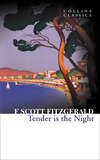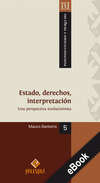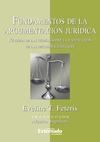Kitabı oku: «The French Lieutenant's Woman / Любовница французского лейтенанта», sayfa 2
6
Mrs. Poulteney's face, that afternoon when the vicar returned and made the announcement, expressed ignorance. “I do not know her.”
“I did not suppose you would. She is a Charmouth34 girl.”
“A girl?”
“That is, I am not quite sure of her age, a woman, a lady of some thirty years of age. Perhaps more.” The vicar felt that he was making a poor start. “But a most distressing case. Most deserving of your charity.”
“Has she an education?”
“Yes indeed. She was trained to be a governess. She was a governess.”
“And what is she now?”
“I believe she is without employment.”
“Why?”
“That is a long story.”
“I should certainly wish to hear it before taking her in.”
So the vicar sat down again, and told her what he knew of Sarah Woodruff.
“ The girl's father was a farmer merely, but a man of excellent principles and highly respected in the neighborhood. He most wisely gave the girl a good education.”
“He is dead?”
“Some several years ago. The girl became a governess to Captain John Talbot's family at Charmouth.”
“Will he give a letter of reference35?”
“My dear Mrs. Poulteney, we are discussing, if I understood our earlier conversation right, an object of charity, not an object of employment. No doubt such a letter can be obtained. She left his home at her own request36. What happened was this. You will recall the French ship that was driven ashore37 under Stonebarrow last December? And you will no doubt recall that three of the crew were saved and were taken in by the people of Charmouth? Two were simple sailors. One, I understand, was the lieutenant of the vessel. His leg had been crushed, but he clung to a spar38 and was washed ashore. You must surely have read of this.”
“Very probably. I do not like the French.”
“Captain Talbot, as a naval officer himself, most kindly offered hospitality to the foreign officer. He spoke no English. And Miss Woodruff was called upon to interpret and look after his needs.”
“She speaks French?” Mrs. Poulteney's alarm at this awful news was nearly enough to sink the vicar. But he smiled.
“My dear madam, so do most governesses. It is not their fault if the world requires such quality of them. But to return to the French gentleman. I regret to say that he did not deserve that name.”
“Mr. Forsythe!”
“I want to add that no misconduct took place at Captain Talbot's. Or so far as Miss Woodruff is concerned, at any place or time. But the Frenchman managed to gain Miss Woodruff's affections39. When his leg was mended he took coach to Weymouth, there to find a home passage40. Two days after he had gone Miss Woodruff asked Mrs. Talbot to allow her to leave her post. I am told that Mrs. Talbot tried to learn the woman's reasons. But without success.”
“And she let her leave without notice41?”
The vicar took his chance. “I agree – it was most foolish. But I will make my story short. Miss Woodruff joined the Frenchman in Weymouth. Her conduct should be criticized, but I am informed that she stayed with a female cousin.”
“That does not excuse her in my eyes.”
“Certainly not. But you must remember that she is not a lady born. The lower classes are not so accurate as ourselves. Furthermore I have forgotten to tell you that Miss Woodruff went to Weymouth because the Frenchman had promised to marry.”
“But was he not a Catholic?”
“I am afraid his conduct shows he was without any Christian faith. After some days he returned to France, promising Miss Woodruff that as soon as he had seen his family and got a new ship he would come back to Lyme, marry her, and take her away with him. Since then she has waited. It is quite clear that the man was a heartless deceiver.”
“And what has happened to her since? Surely Mrs. Talbot did not take her back?”
“Madam, Mrs. Talbot is an eccentric lady. She offered to do so. But I now come to the sad consequences of my story. Miss Woodruff is not insane. Far from it. She is perfectly able to perform any duties that may be given to her. But she suffers from grave attacks of melancholia. But also, she has a fixed idea that the lieutenant is an honorable man and will one day return to her. For that reason she may be frequently seen on the pier. I would say, madam, she is slightly crazed42.”
There was a silence then. The vicar hoped for chance. He felt that Mrs. Poulteney was calculating. Her opinion of herself required her to appear shocked and alarmed at the idea of allowing such a creature into Marlborough House. But there was God to be accounted to43.
“She has relatives?”
“I understand not.”
“How has she supported herself since…?”
“I understand she has been doing a little needlework. But she has been living principally on her savings from her previous situation.”
“She has saved, then.”
The vicar breathed again.
“If you take her in, madam, I think she will be truly saved.” He played his trump card44.
And a week later Mrs. Talbot mailed a letter of reference, which did more harm than good, since it didn't condemn sufficiently the governess's conduct. One phrase in particular angered Mrs. Poulteney. “Monsieur Varguennes was a person of considerable charm, and Captain Talbot wishes me to state that a sailor's life is not the best school of morals.” Nor did it interest her that Miss Sarah was a “skilled and dutiful teacher” or that “My infants have deeply missed her.” But Mrs. Talbot's tolerance and sentimentality finally helped Sarah with Mrs. Poulteney; they set her a challenge45.
So Sarah came for an interview, accompanied by the vicar. She pleased Mrs. Poulteney from the start, by seeming so cast down by circumstance. It was true that she looked what she indeed was – near twenty-five. But only her sorrow showed she was a sinner, and Mrs. Poulteney wanted her look more clearly to be in that category.
Then, at the vicar's suggestion, she dictated a letter. The handwriting was excellent, the spelling perfect. She passed Sarah her Bible and made her read. Sarah's voice was firm, rather deep. It had traces of a rural accent, but in those days a genteel accent was not the great social requisite it later became. Perhaps it was by contrast with Mrs. Fairley's stumbling that the voice first satisfied and then charmed Mrs. Poulteney. There remained a brief interrogation.
“Mr. Forsythe informs me that you are attached to the foreign person.”
“I do not wish to speak of it, ma'm.”
If any maid had dared to say such a thing to Mrs. Poulteney, the Dies Irae46 would have followed. But this was spoken openly, without fear, yet respectfully.
“I will not have French books in my house.”
“I have none. Nor English, ma'm.”
“You have surely a Bible?”
The girl shook her head. The vicar intervened. “I will attend to that, my dear Mrs. Poulteney.”
“I am told you constantly attend divine service.”
“Yes, ma'm.”
“Let it remain so. God consoles us in all adversity47.”
“I try to share your belief, ma'm.”
Mrs. Poulteney put her most difficult question, one the vicar had in fact asked her not to make.
“What if this, person returns; what then?”
But again Sarah did the best possible thing: she said nothing, and simply bowed her head and shook it. In her favorable mood Mrs. Poulteney entered upon her good deed48.
It had not occurred to her, of course, to ask why Sarah, who had refused offers of work from less strict Christian souls than Mrs. Poulteney's, should wish to enter her house. There were two very simple reasons. One was that Marlborough House gave a good view of Lyme Bay. The other was even simpler. She had exactly sevenpence in the world.
7
In the morning, when Sam drew the curtains, Charles sat up, took off his nightcap, told Sam to throw open the windows and stared at the sunlight that went into the room. The gloom that had oppressed him the previous day had blown away with the clouds. He felt the warm spring air through his nightshirt. In the cobbled street below, a rider clopped peacefully down towards the sea. All was supremely well. The world would always be this, and this moment.
Charles wished he could draw. Really, the country was charming. He turned to his man.
“Upon my word, Sam, on a day like this I could never see London again.”
“If you goes on a-standin' in the hair, sir, you won't, neither49.”
His master gave him a dry look. He and Sam had been together for four years and knew each other very well.
“Sam, you've been drinking again.”
“No, sir.”
“ The new room is better?”
“Yes, sir.”
Sam tested the blade of the razor on the edge of his small thumb, with an expression on his face that suggested that at any moment he might change his mind50 and try it on his own throat; or perhaps even on his smiling master's.
“It's that there kitchen-girl's at Mrs. Tranter's, sir. I ain't 'alf going to…”
“Kindly put that instrument down. And explain yourself.”
“I sees her. Dahn out there.” He jerked his thumb at the window. “Right across the street she calls.”
“And what did she call?”
Sam's expression deepened to outrage. “'Ave yer got a bag o' soot?'” He paused. “Sir.”
Charles grinned.
“I know the girl. That one in the gray dress? Who is so ugly to look at?” This was unkind of Charles, since he was speaking of the girl he had raised his hat to on the previous afternoon.
“Not exackly hugly. Leastways in looks.”
“A-ha. So. Cupid is being unfair to Cockneys.”
Sam gave an indignant look. “I woulden touch 'er with a bargepole51! Bloomin52' milkmaid.”
“I trust you're using the adjective in its literal sense53, Sam.” “It's the 'oomiliation, Mr. Charles. Hall the hosslers 'eard.” As “all the ostlers” included exactly two persons, one of whom was stone deaf, Charles showed little sympathy. He smiled, then gestured to Sam to pour him his hot water.
“Now get me my breakfast, there's a good fellow. I'll shave myself this morning. And let me have a double dose of muffins.”
“Yes, sir.”
But Charles stopped Sam at the door.
“These country girls are much too timid to call such rude things at distinguished London gentlemen – unless they've first been provoked. I suspect, Sam, that you've been fast.” Sam stood with his mouth open. “And if you're not doubly fast with my breakfast I shall fasten my boot onto the posterior portion of your miserable anatomy54.”
The door was shut then, and none too gently. Charles winked at himself in the mirror. Then he smiled at his own face contemplating his features. He had indeed very regular ones – a wide forehead, a moustache as black as his hair. His skin was rather pale, though less so than that of many London gentlemen – for this was a time when a suntan was not at all a desirable social-sexual status symbol, but the reverse: an indication of low rank. Yes, upon examination, it was a rather foolish face, at such a moment. Too innocent a face, when it was stripped of its formal outdoor mask. There was really only the Doric nose55, the cool gray eyes. Breeding and self-knowledge, he most certainly had56.
He began to cover his face in lather.
8
Ernestina had woken in a mood that the brilliant day only worsened. The ill was familiar; but it was out of the question that she should inform Charles about her problem. And so, when he called dutifully at ten o'clock at Aunt Tranter's house, he was greeted only by that lady: Ernestina had passed a slightly disturbed night, and wished to rest. Might he not return that afternoon to take tea, when no doubt she would recover?
Charles's polite questions – should the doctor not be called? – were politely answered in the negative, and he took his leave57. He told Sam to buy flowers and take them to the charming invalid's house, and accompanied his request with the permission and advice to present a blossom or two of his own to his young lady. Now Charles faced his own free hours.
Lyme is situated in the center of one of the rare outcrops of a stone known as blue lias58. To the mere landscape enthusiast this stone is not attractive. Moreover, it is treacherous, since this little stretch of blue lias coast has lost more land to the sea in the course of history than almost any other in England. But it's a Mecca for the British paleontologist.
Charles had already visited what was perhaps the most famous shop in the Lyme of those days – the Old Fossil Shop. There he paid his cash for various species he kept in the cabinets that walled his study in London.
This was petrified sea urchin59. These beautiful little objects are of great scientific value; and they have the added charm that they are always difficult to find. You may search for days and not come on one; and a morning in which you find two or three is indeed a morning to remember.
Some half-hour after he had called on Aunt Tranter, Charles was once again at the Cobb60.
The great mole was far from isolated that day. There were fishermen, better-class people, early visitors, local residents, walking beside the now mild sea. Of the woman who stared, Charles noted, there was no sign. But he did not give her a second thought61 and set out for his destination.
He was carefully equipped for his role. He wore nailed boots and canvas gaiters. There was a tight and absurdly long coat to match; a canvas wideawake hat62; and a huge rucksack, from which you might have shaken out hammers, wrappings, notebooks, pillboxes63, and heaven knows what else.
As Charles hammered and bent and examined his way along the shore, trying to jump over a wide gap between boulders, he slipped on his back. He didn't mind slipping, for the day was beautiful, the liassic fossils were plentiful and he soon found himself completely alone.
The sea sparkled, birds cried, and an idea drifted across the poor fellow's brain – would it not be more fun, perhaps to give up London, to live in Lyme… but Ernestina would never allow that.
Finally he came across a very fine fragment of lias with ammonite impressions, exquisitely clear. Having duly filled a label with the date and place of finding, he once again switched to another theme – this time, to love. He determined to give it to Ernestina when he returned. It was pretty enough for her to like; and after all, very soon it would come back to him, with her. Even better, the increased weight on his back made it a labor, as well as a gift.
And Charles wandered more slowly than he meant. He unbuttoned his coat and took out his silver half-hunter64. Two o'clock! He looked sharply back then, and saw the waves lapping the foot of a point a mile away. He was in no danger of being cut off, since he could see a steep but safe path just ahead of him which led up the cliff to the dense woods above. But he could not return along the shore. His destination had indeed been this path, but he took it much too fast, and had to sit a minute to recover. He heard a little stream nearby and quenched his thirst65; wetted his handkerchief and patted his face; and then he began to look around him.
9
Sarah was intelligent, but her real intelligence belonged to a rare kind; one that would certainly pass unnoticed in any of our modern tests. It was not in the least analytical or problem-solving, nor did it demonstrate itself in the form of any particular vivacity or wit, even in her happier days. It was rather an unusual – unusual in one who had never been to London, never mixed in the world – ability to classify other people's worth: to understand them, in the fullest sense of that word.
She had some sort of psychological equivalent of the experienced horse dealer's skill – the ability to know almost at the first glance the good horse from the bad one. She could see people as they were and not as they tried to seem.
She got her education in a third-rate young ladies' seminary in Exeter, where she had learned during the day and paid for her learning during the evening – and sometimes well into the night – by darning and other small tasks. She did not get on well with the other pupils. They looked down on her; and she looked up through them. Thus it had come about that she had read far more fiction, and far more poetry. They served her as a substitute for experience. Without realizing it she judged people as much by the standards of Walter Scott66 and Jane Austen67. She was a perfect victim of a caste society. Her father had forced her out of her own class, but could not raise her to the next. To the young men of the one she had left she had become too select to marry; to those of the one she aspired to, she remained too banal.
This father sent her to boarding school not out of concern for his daughter but because of obsession with his own ancestry. Four generations back on the paternal side they were clearly established gentlemen. There was even a remote relationship with the Drake68 family. Perhaps he was disappointed when his daughter came home from school at the age of eighteen and sat across the table from him and watched him when he boasted, annoyed him like a piece of useless machinery. He bought a farm of his own; but he bought it too cheap, and what he thought was a good bargain69 turned out to be a bad one. He went quite literally mad and was sent to Dorchester Asylum. He died there a year later. By that time Sarah had been earning her own living70 for a year – at first with a family in Dorchester, to be near her father. Then when he died, she had taken her post with the Talbots.
She was too good-looking a girl not to have had suitors, in spite of the lack of a dowry of any kind. But she always saw through the too confident pretendants. She saw their meannesses, their stupidities. Thus she was doomed to spinsterhood.
Sarah stayed with Mrs. Poulteney for a year and there happened great changes which did credit71 to their relationship.
It had begun one morning only a few weeks after Miss Sarah had taken up her duties. The old lady had noticed that the upstairs maid whose duty it was each Tuesday to water the ferns in the drawing room hadn't done so. The girl was called and she confessed that she had forgotten; and Mrs. Poulteney began, like a bulldog about to sink its teeth into a burglar's ankles72, to speak.
“I will tolerate much, but I will not tolerate this.”
“I'll never do it again, mum.”
“You will most certainly never do it again in my house.”
“Oh, mum. Please, mum.”
“Mrs. Fairley will give you your wages.”
Miss Sarah was present at this conversation, since Mrs. Poulteney had been dictating letters. She now asked a question; and the effect was remarkable. It was, to begin with, the first question she had asked in Mrs. Poulteney's presence that was not directly connected with her duties. Secondly, it opposed the old lady's judgment73. Thirdly, it was spoken not to Mrs. Poulteney, but to the girl.
“Are you quite well, Millie?”
Miss Sarah was beside her; and within the next minute had learned that the girl was indeed not well, had fainted twice within the last week, had been too afraid to tell anyone…
When, some time later, Miss Sarah returned from the room in which the maids slept, and where Millie had now been put to bed, it was Mrs. Poulteney's turn to ask a question.
“What am I to do?”
“As you think best, ma'm.”
On Mrs. Poulteney's birthday Sarah presented her with an antimacassar74 embroidered with ferns and lilies-of-the-valley. It pleased Mrs. Poulteney highly.
But there was a debit side of the relationship. It had been initially arranged that Miss Sarah should have one afternoon a week free. All seemed well for two months. Then one morning Miss Sarah did not appear at the Marlborough House matins; and when the maid was sent to look for her, it was discovered that she had not risen. Mrs. Poulteney went to see her. Sarah was in tears, but on this occasion Mrs. Poulteney felt only irritation. However, she sent for the doctor. He remained closeted with Sarah a long time. When he came down to Mrs. Poulteney, he gave her a brief lecture on melancholia and ordered her to allow her sinner more fresh air and freedom.
“If you insist on the most urgent necessity for it.”
“My dear madam, I do. And I will not be responsible otherwise.”
And on his strict order it was that Sarah achieved a daily demi-liberty.
Mrs. Poulteney wanted her charity to be seen, which meant that Sarah had to be present with visitors. Once again Sarah showed her diplomacy. With certain old-established visitors, she remained; with others she discreetly left when they were announced. This latter reason was why Ernestina had never met her at Marlborough House.
But I have left the worst matter to the end. Mrs. Poulteney had made several more attempts to learn the details of the sin. But every time Mrs. Poulteney approached the subject, the sinner's answers to direct questions were always the same as the one she had given at her first interrogation.
Now Mrs. Poulteney seldom went out, so that she had to rely on other eyes for news of Sarah's activities outside her house. Fortunately for her such a pair of eyes existed – this spy, of course, was none other than Mrs. Fairley, a woman whose only pleasures were knowing the worst or fearing the worst; thus she developed for Sarah a hatred.
She had a wide network of relations and acquaintances at her command. To these latter she said that Mrs. Poulteney wanted to be informed of Miss Woodruff's behavior outside the tall stone walls of the gardens of Marlborough House. The result was that Sarah's every movement and expression in her free hours was soon known to Mrs. Fairley.
Sarah always went to the Cobb Gate. There she would stand at the wall and look out to sea. On the way, she would most often turn into the parish church, and pray for a few minutes. She could be seen walking up the grassland, with frequent turns towards the sea. This walk she would do when the Cobb seemed crowded; but when weather made it deserted, she would more often turn that way and end by standing where Charles had first seen her; there, it was supposed, she felt herself nearest to France.
All this came back to Mrs. Poulteney.
“I am told, Miss Woodruff, that you are always to be seen in the same places when you go out.” Sarah looked down before the accusing eyes. “You look to sea.” Still Sarah was silent. “I am satisfied that you are in a state of repentance.”
“I am grateful to you, ma'm.”
“I am not concerned with your gratitude to me. There is One Above75 us all.”
The girl murmured, “How should I not know it?”
“To the ignorant it may seem that you are persistent in your sin.”
“If they know my story, ma'm, they cannot think that.”
“But they do think that. I am told they say you are looking for Satan's sails.”
Sarah rose then and went to the window. She gazed for a moment out over that sea, then turned back to the old lady, who sat in her armchair as the Queen on her throne.
“Do you wish me to leave, ma'm?”
Mrs. Poulteney was shocked. She moderated her tone.
“I wish you to show that this… person is crossed out from your heart. I know that he is. But you must show it.”
“How am I to show it?”
“By walking elsewhere. If for no other reason, because I ask for it.”
Sarah stood with bowed head, and there was a silence. But then she looked Mrs. Poulteney in the eyes and for the first time since her arrival, she gave the faintest smile.
“I will do as you wish, ma'm.”
Sarah kept her side of the bargain76. She now went very rarely to the Cobb, though when she did, she still sometimes allowed herself to stand and stare, as on the day we have described.
Mrs. Fairley, then, had a poor time of it for many months. But one day, not a fortnight before the beginning of my story, Mrs. Fairley had come to Mrs. Poulteney with the face of one about to announce the death of a close friend.
“I have something unhappy to communicate, ma'm.”
“It cannot concern Miss Woodruff?”
“Would that it did not, ma'm77. But I fear it is my duty to tell you.”
“We must never fear what is our duty.”
“No, ma'm.”
“She has taken to walking, ma'm, on Ware Commons78.”
Mrs. Poulteney's mouth did something extraordinary. It fell open.

















